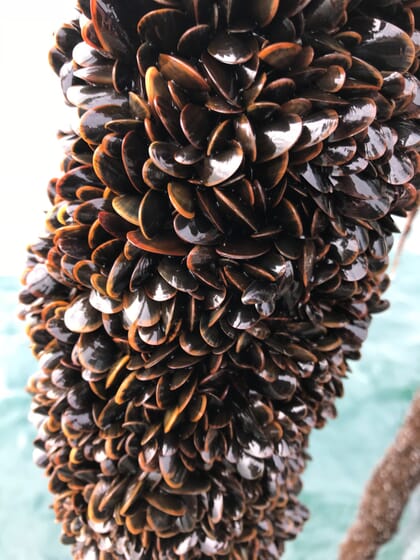
© Offshore Shellfish
Part of a project by Jacob Gawel at the University of Cambridge, the study seeks to improve the seafood sector’s understanding of public perception towards farmed bivalve shellfish.
“Our food choices are central to our health and environmental footprint. Despite their health and environmental benefits, bivalves remain an unpopular source of protein for people in the UK. This project offered a chance to learn about the factors that influence people’s food behaviours, and to help inform bivalve product development with potentially important consequences for the sustainability of our UK food system,” Gawel explains.
The survey is part of a wider initiative by Dr David Willer, whose group at Cambridge is researching the opportunities and challenges of integrating bivalve aquaculture into global food systems. A key challenge is increasing consumer demand and the study aims to provide insights into the current barriers and drivers of bivalve consumption in the UK and evaluate the potential for new bivalve products to overcome this challenge.
According to Gawel, encouraging more people to eat farmed bivalves is a win-win, for both the environment and human health.
“Bivalves have higher levels of iron, zinc, vitamin A and B12, and omega 3 fatty acids, and a similar protein content to popular fish such as cod and tuna. Regarding sustainability, bivalve aquaculture uses almost no land or freshwater – relying on seawater instead – and has lower greenhouse gas emissions than many meats and plant crops. Bivalve reefs also provide ecological benefits such as water filtration, provision of nursery habitats for fish and coastal flood and storm protection,” he reflects.
Despite all these positives, the majority of UK consumers don’t eat bivalves on a regular basis.
“It’s a combination of the perceived inconvenience of preparing shellfish, a lack of familiarity with the taste of bivalves, gaps in knowledge about their health and environmental benefits, concerns about food safety, and social norms more generally. However, this is by no means an exhaustive list and this question needs more investigation,” Gawel reflects.
“To overcome this barrier, it may help to provide bivalve meat in more convenient and familiar formats, for example in mussel fingers or clam nuggets,” he adds.




